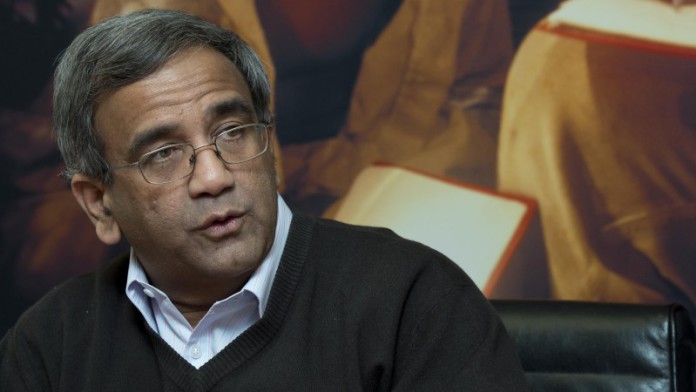
Resolving the issues between AngloGold Ashanti and the Ghanaian government over the Obuasi mine was a critical development before Srinivasan “Venkat” Venkatakrishnan stepped down as CEO.
Venkat will leave AngloGold at the end of August to become CEO of diversified resources major Vedanta and will be replaced by Kelvin Dushnisky who was president of Barrick Gold.
Speaking at media press briefing on Monday Venkat commented, “Obuasi was a loose end which I wanted tied up before my departure from the company.”
He added, “ I have a number of regrets on leaving AngloGold Ashanti at this point but the most satisfying issue for me is the conclusion of all the agreements on Obuasi.
“I have regrets leaving at a position where most of the heavy lifting has actually been done and the company is in break-out territory. “
In Anglogold’s interim report for the six months to end-June Venkat commented international arbitration proceedings against the Ghanaian government were voluntarily suspended last year.
He added, “the dispute has now been resolved to the parties’ mutual satisfaction and the company has submitted a request to the Tribunal on July 19, 2018 that the proceedings be discontinued.
“Further, the Ghanaian parliament has ratified a number of regulatory and fiscal agreements with the company in relation to the redevelopment of the mine into a modern and mechanised operation, marking an important step for the mine’s future.”
Asked if he could now explain what exactly happened at Obuasi – which was overrun by illegal miners for nine months while the then government did nothing to prevent this – Venkat replied, “ We have still not got to the right answer on the invasion of Obuasi by illegal miners. I cannot say why it happened .”
The troubles at Obuasi are only part of the problems faced by AngloGold Ashanti in recent years as its mines in other countries such as Tanzania and the Democratic Republic of Congo (DRC) have been affected in various ways by a surge in “resource nationalism”.
Venkat flagged resolving the situation in Tanzania where AngloGold operates the Geita mine as one of the three top priorities for the incoming CEO.
He commented, “being an emerging market gold producer you have to be able to deal with volatility through various jurisdictions. Resource nationalism is not around how much money you are actually paying to the government. That’s just a part of it.
“The big issue is that the resource belongs to the country. What mining companies must do better is to ensure that local communities are better off as a result of the mine operating there.
“We have taken a conscious decision to reduce the number of expatriate workers used in Africa and go for more local recruitment and procurement.
“ What is missing at the moment across the continent is the mining companies and the governments sitting down together and having a discussion. This should have happened when the Africa mining vision was actually created but it tends to be a dialogue between the governments. The mining industry needs to have a seat at that table. “
Venkat added, “In the DRC we did our level best with our partners in terms of the discussions but what you are seeing is – effectively – a train coming through across the continent. That requires a continent-wide initiative probably through the African Union as the place to begin.
“That’s the area where the mining companies need to have a seat at the table otherwise we are tackling individual country issues as they happen rather than a holistic approach in terms of Africa. “











